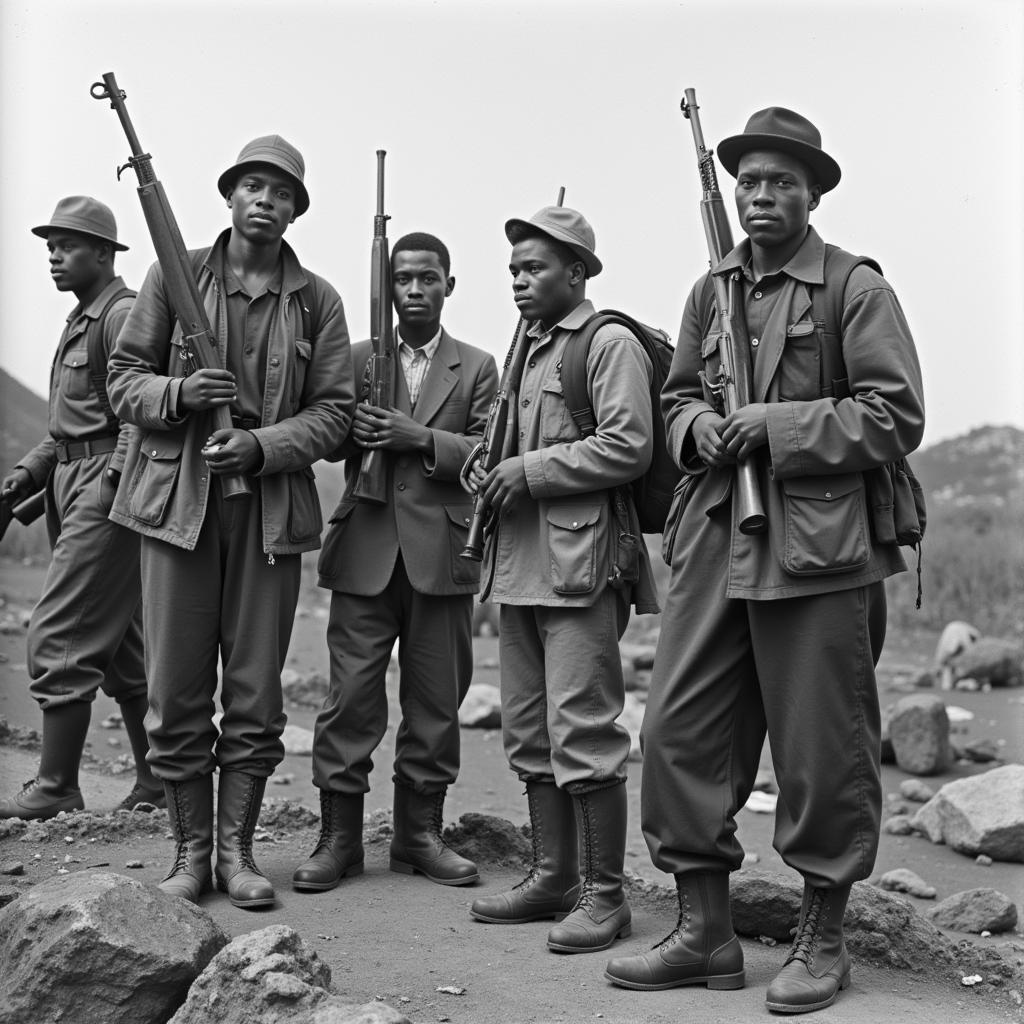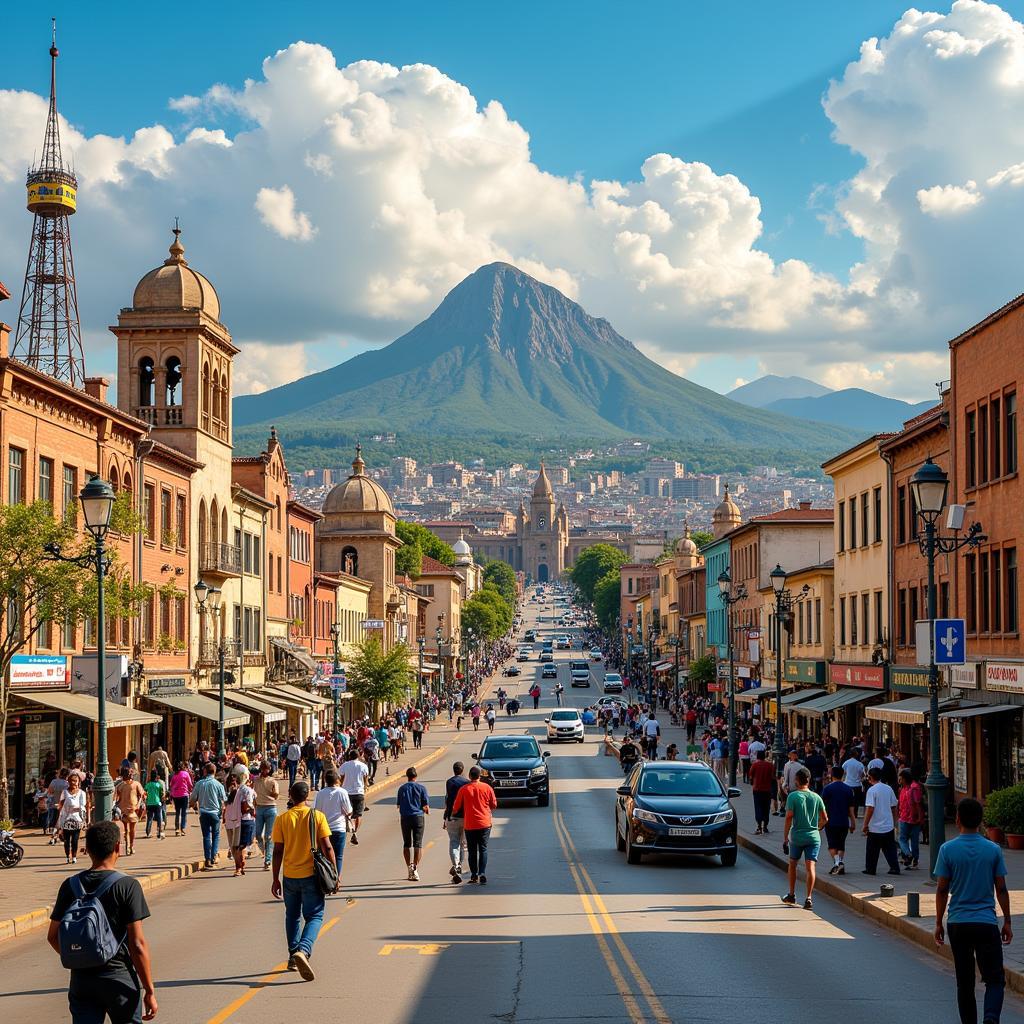The African Country Never Colonized by a European Power: Ethiopia’s Story of Resilience
Ethiopia stands as a beacon of independence in Africa, a nation that largely resisted the tide of European colonization that swept across the continent. While technically occupied by Italy for a brief period, Ethiopia’s story is one of fierce resistance and a testament to the strength of its people. This article delves into the historical context of Ethiopia’s defiance and explores the complexities of its unique journey. See the list of African countries and their respective historical journeys. a list of all african countries
Ethiopia: A History of Defiance Against Colonialism
The scramble for Africa saw European powers carve up the continent, establishing colonies and exploiting resources. However, Ethiopia, then known as Abyssinia, remained a significant exception. Its mountainous terrain, strong leadership, and a unified sense of national identity proved formidable obstacles to potential colonizers. While other nations succumbed to European pressure, Ethiopia fought back, preserving its sovereignty and cultural heritage.
How Did Ethiopia Resist Colonization?
Several factors contributed to Ethiopia’s successful resistance. One key element was the strategic leadership of Emperor Tewodros II and Emperor Menelik II. They modernized the Ethiopian army, implementing modern weaponry and tactics that proved crucial in repelling Italian advances. The Battle of Adwa in 1896, a decisive victory against Italian forces, solidified Ethiopia’s independence and resonated throughout Africa and the world. This victory inspired other African independence movements. You can find a timeline of these movements here: african independence movements timeline
The Role of Geography and Unity in Ethiopian Resistance
The rugged terrain of the Ethiopian highlands provided a natural defense against invaders, making it difficult for foreign armies to navigate and conquer. Beyond geographical advantages, the strong sense of national identity and unity among the Ethiopian people played a pivotal role. This shared purpose and collective resistance further strengthened their defense against colonialism.
The Italian Occupation: A Brief Interlude
Despite its successful resistance, Ethiopia did face a brief period of Italian occupation from 1936 to 1941 under Benito Mussolini. However, this occupation, far from being a complete subjugation, met with continuous resistance from Ethiopian patriots. The unwavering spirit of the Ethiopian people, coupled with support from Allied forces during World War II, ultimately led to the liberation of the country.
The Legacy of Resistance
Ethiopia’s resilient fight against colonial rule left an indelible mark on the nation’s identity and continues to inspire pride and patriotism. This legacy has positioned Ethiopia as a symbol of independence and self-determination in Africa. See more about African countries and their capitals here: african countries and capitals wiki
 Ethiopian Resistance Fighters during Italian Occupation
Ethiopian Resistance Fighters during Italian Occupation
Ethiopia Today: An Independent Nation
Modern-day Ethiopia is a testament to its rich history and unwavering spirit. The country embraces its unique heritage while navigating the complexities of a globalized world. Ethiopia’s independence is a source of national pride, shaping its identity and informing its future trajectory.
 Modern Day Addis Ababa: Ethiopia's Capital City
Modern Day Addis Ababa: Ethiopia's Capital City
Conclusion: Ethiopia’s Enduring Symbol of African Independence
Ethiopia’s story is a powerful reminder of the indomitable spirit of a people determined to maintain their sovereignty. As the African Country Never Colonized By A European Power (in the full sense of the term), Ethiopia’s history serves as an inspiration to nations across the globe and a testament to the importance of self-determination.
FAQ
- Was Ethiopia ever colonized? While briefly occupied by Italy, Ethiopia was never fully colonized.
- What was the significance of the Battle of Adwa? It was a decisive Ethiopian victory against Italian forces, securing Ethiopia’s independence.
- Who were key leaders in Ethiopian resistance? Emperors Tewodros II and Menelik II played crucial roles.
- How did geography influence Ethiopia’s resistance? The mountainous terrain provided a natural defense against invaders.
- What is Ethiopia’s legacy of resistance? It is a symbol of African independence and self-determination.
- What role did unity play in Ethiopia’s resistance? A shared national identity strengthened their defense against colonialism.
- How did Ethiopia regain independence from Italy? Through persistent resistance and support from Allied forces during WWII.
Need help with your travel plans to Africa or want to know more about specific countries? Contact us!
Phone: +255768904061
Email: kaka.mag@gmail.com
Address: Mbarali DC Mawindi, Kangaga, Tanzania.
We have a 24/7 customer service team ready to assist you.
